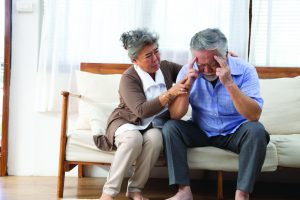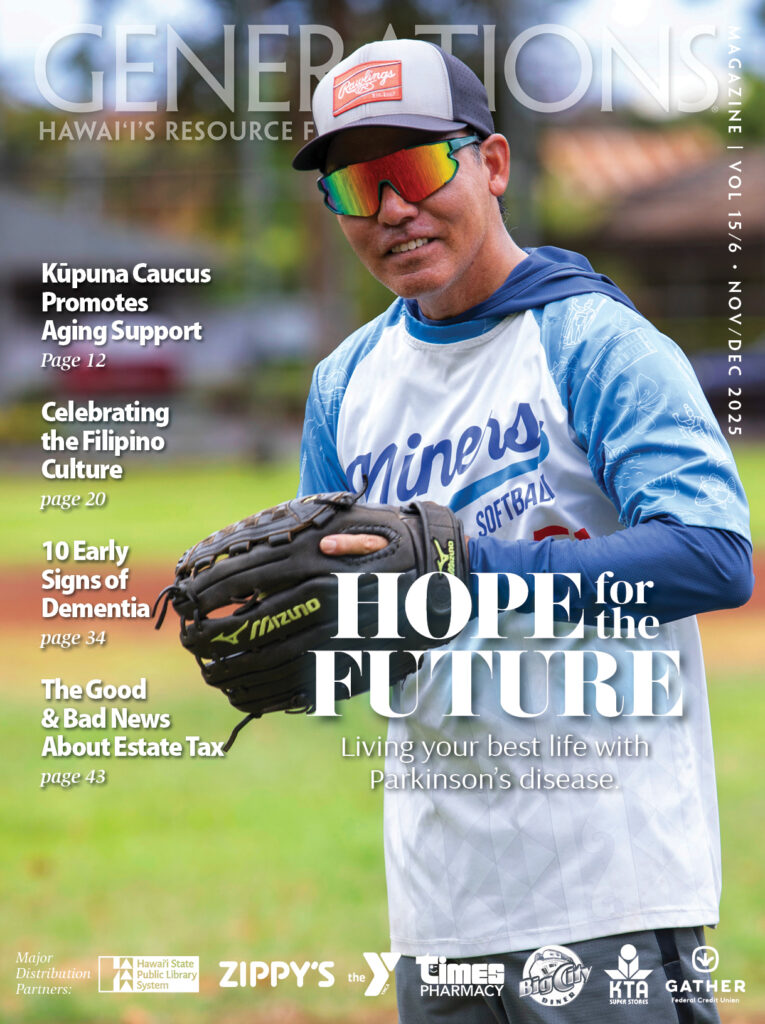As a mental health professional for 45 years, I am increasingly concerned about the welfare of our most vulnerable populations since the onset of the COVID-19 pandemic. Since it began in February, approximately 54 percent of older adults surveyed reported increased loneliness, and associated depression and anxiety. Prolonged periods of isolation correlate with a loss of independence, contributing to an increase in mental and physical health issues.
In Hawai’i, mental health is the most common cause of disability. Prior to the pandemic, 3.2 percent of Hawai‘i’s adult population lived with serious mental health conditions, such as major depression, generalized anxiety, bipolar disorder or schizophrenia, according to government statistics.
The Substance Abuse and Mental Health Services Administration reports that 68.2 percent of Hawai’i adults living with mental illness do not receive
any type of treatment. And untreated mental health issues such as depression have been linked to premature death from those stress-related conditions — even suicide. Prior to the pandemic, statistics from the National Council on Aging state that those 85 years and older have the highest suicide rate of any age group — over four times higher than the nation’s overall rate. Issues related to isolation during the pandemic may have increased that statistic.
During this time of increased isolation, the absence of a regular routine and a lack of purpose can add to seniors’ frustrations, sometimes leading to depression and associated signs, such as lack of appetite, irritability, mood swings, isolating themselves, crying, increased sleep or restlessness and
feelings of hopelessness.
It’s more important now — more than ever — to try to help our seniors feel valued and needed.
It is essential that families and caregivers understand that while there are identifiable factors that promoted a person’s depression, the condition itself is not simply a “condition of aging.” But the stigma of mental health continues to be a roadblock for those who avoid asking for help. Affordability and lack of access to care can present additional obstacles for many who could benefit from mental health support.
It is also important to remember that depression is treatable in over 90 percent of those affected. Improving a person’s mental health condition will enhance their overall quality of life and well-being. Balanced mental health allows healthy family involvement and interpersonal relationships, and the ability to contribute to family, community or society — even during a pandemic — following safe, social distancing guidelines.
Mental disorders are best diagnosed and managed by professionals such as psychiatrists, psychologists, mental health professionals and social workers. If you have a loved one who is exhibiting signs of diminishing mental health, seek out professional help. Specialized support groups for caregivers and seniors alike can also be helpful.
MENTAL HEALTH RESOURCES
If you have private health insurance, contact your primary care physician for a mental health support referral. (Most insurance coverages require a medical doctor referral.)
Mental Health America of Hawai‘i:
808-521-1846 | www.mentalhealthhawaii.org
National Alliance on Mental Health, Hawai‘i:
808-591-1297 | www.namihawaii.org
Crisis Line of Hawaii / Hawai’i Cares: (24/7 helpline)
808-832-3100 (O‘ahu) or toll-free at 1-800-753-6879
National Suicide Prevention Lifeline: (24/7 helpline)
800-273-8255 | www.suicidepreventionlifeline.org
Alzheimer’s Association — Hawai‘i: (24/7 helpline)
800-272-3900 | www.alz.org/hawaii
Aloha United Way: (free 24/7 helpline for referral and information on health and human services)
Dial 2-1-1 | www.auw.org/211-information-referral-service
State of Hawai‘i Dept. of Health–Adult Mental Health Div.:
808-586-4686 | bit.ly/HawaiiGovAdultMentalHealth



Leave a Reply